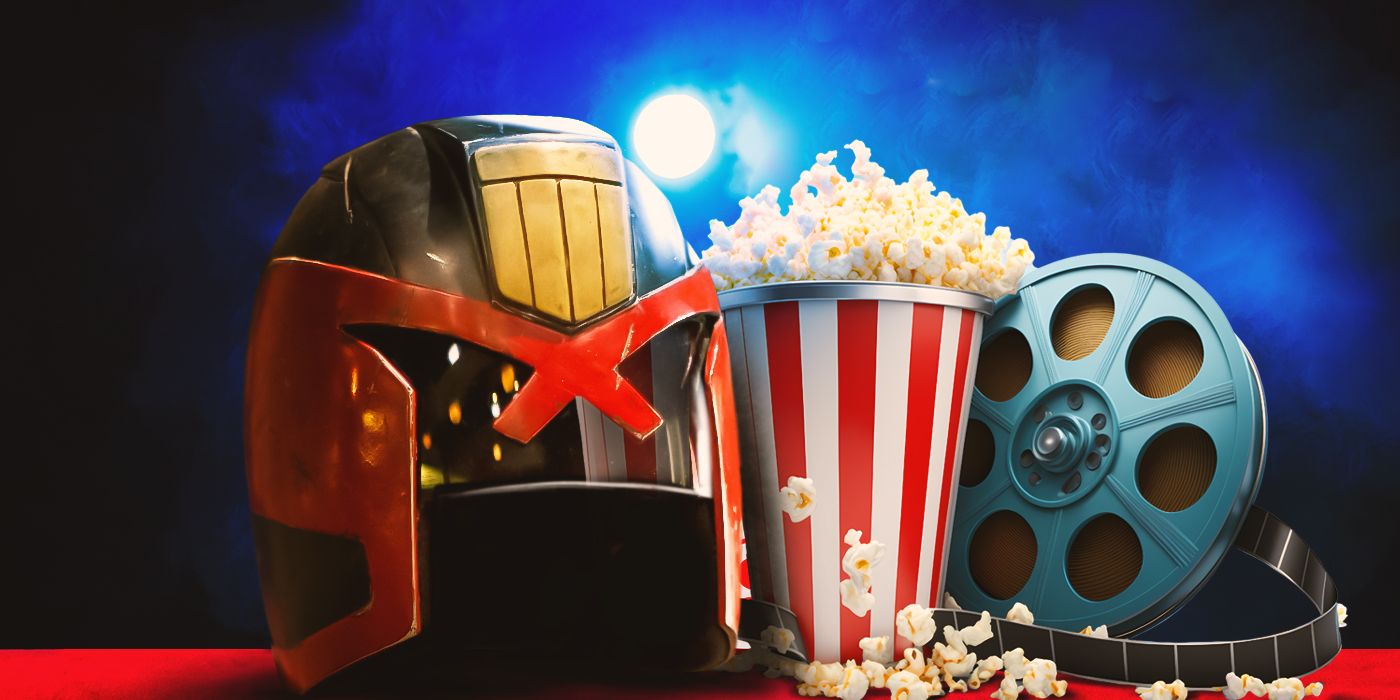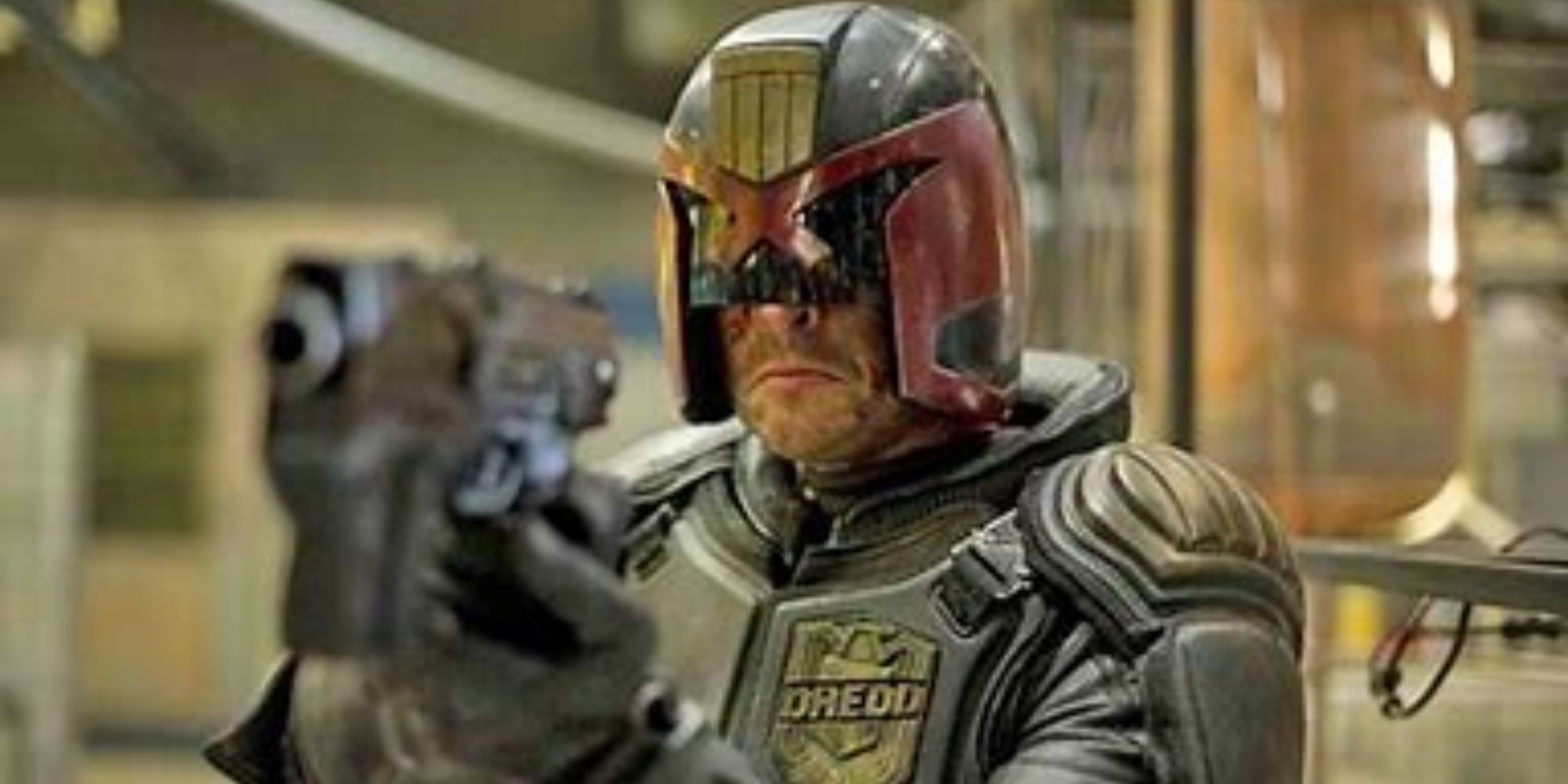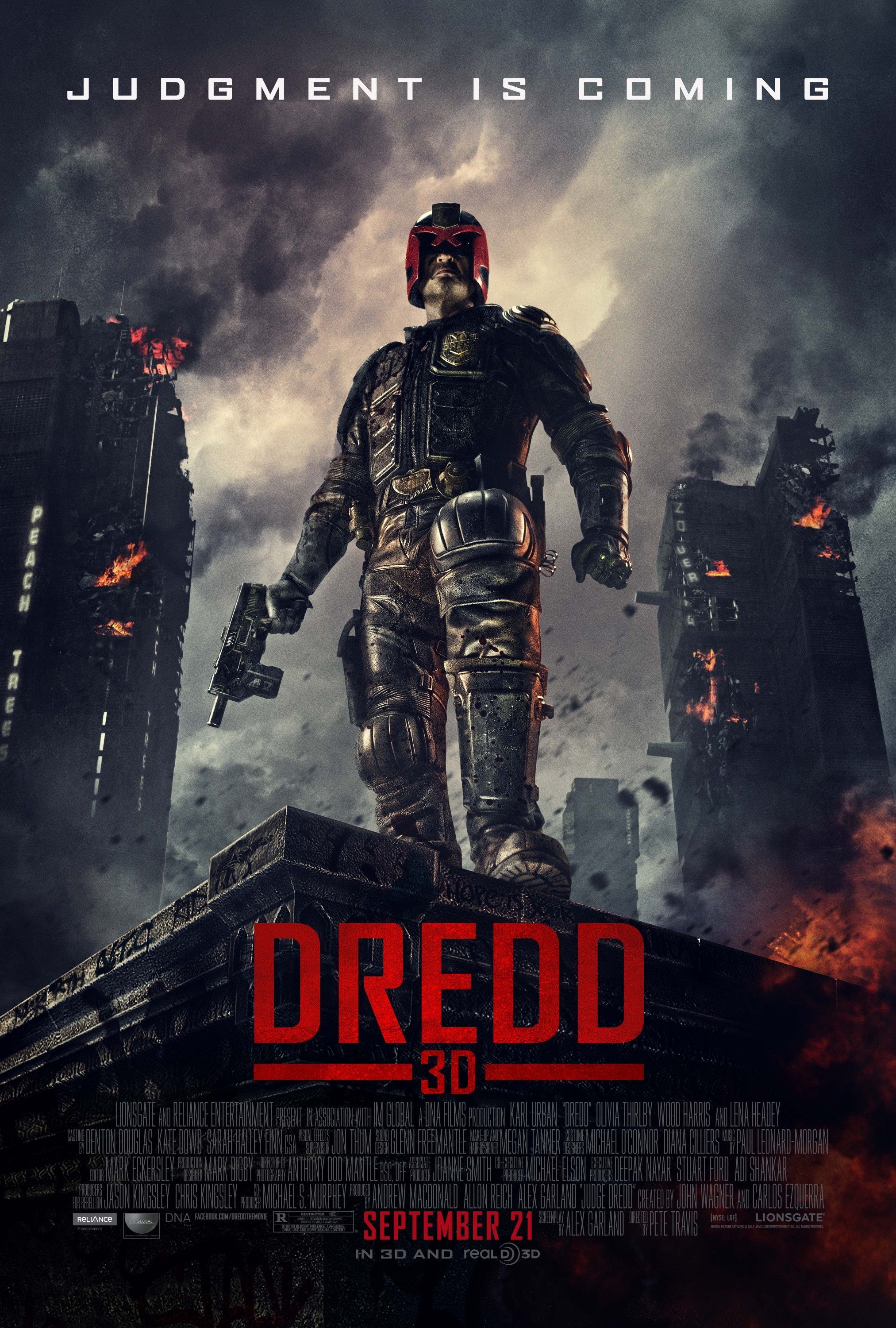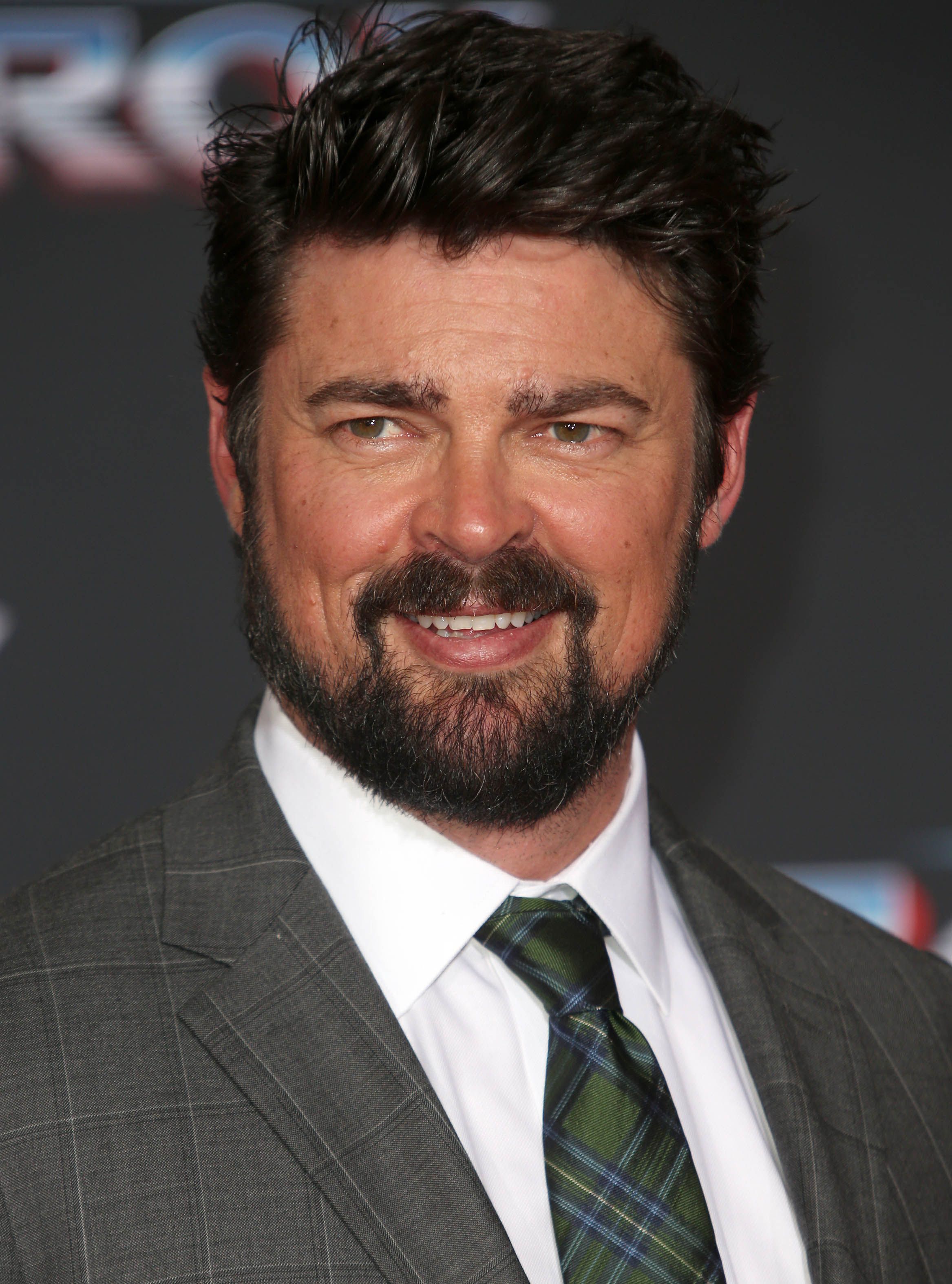The moreAlex Garlandsolidifies his identity as a proven auteur, the clearer it becomes thathe has a fascination with the human impulse towards violence as a way of enforcing social order.
WithCivil Warin the past andWarfareon the horizon, Garland keeps looking into the eye of the pervasive storm that never ceases in the hearts of those who feel a need to fight against a senseless world.
He’s come a long way from his days as a go-to screenwriter forintelligent science fictionandshocking horror, and it turns out we should have seen this shift coming, as he combined those two sides to writeDredd,an action cult classic that he may have had a way bigger hand in making than people initially thought.

Custom Image by Nimesh Perera
Alex Garland Was the Genesis of Dredd'
Garland was the primary creative engine ofDreddlong before it even started production, as he’d written a script for it as far back as during postproduction ofSunshine.MoondirectorDuncan Jonescould have directed it, buthe found his visionof the Judge Dredd world to be “really weird and dark and funny…maybe too off the wall” and not aligned with Garland’s script, which was more faithful to the original comic.
Once Garland’s script was picked up for production,Pete Traviswas chosen as director, who had only made the multi-perspective thrillerVantage Pointat that time.
Somewhat suspicious is the fact that when this was announced,Judge Dreddcomic co-creatorJohn Wagnerwas quoted ashaving faith in Garland and producers Andrew Macdonald and Allan Reich…but doesn’t mention Travis at all.

Image via Entertainment Films Distributors
Furthermore, if you look up any interviews given on the creative decisions made for the film, they usually come from Garland, and any Pete Travis piece of insight almost immediately mentions Garland and the ideas of his script.
This was the first of various breadcrumbs that the production ofDreddwould wind up being a repeat ofthe allegedPoltergeistsituationwithSteven SpielbergandTobe Hooper.
Karl Urban Claims Alex Garland Deserves Full Credit for Dredd'
By the accounts of those who have spoken or reported onDredd’s production,Alex Garland is the person who made all the chief creative decisions, not Pete Travis.

Based on the comic character created by John Wagner and Carlos Ezquerra, Dredd is a sci-fi action movie that stars Karl Urban as Judge Dredd, a law enforcement officer who can commute sentences as quickly as he issues them. Set in a dystopian New York-like city called Mega-City One, Dredd is tasked with hunting down a drug lord who controls a massive 200-story apartment complex named Ma-Ma, pushing a new addictive drug called “Slo-Mo” that has become widely used in the slums.
The iconic SLO-MO sequences, the commitment to Dredd (Karl Urban) never showing his face or having a full character arc, and the changes to Dredd’s signature costume:all were Garland’s ideasthat proved bedrocks of the film’s appeal.
Garland’s firm hand on the film’s identity, despite Travis' alleged title, got to the point that,when the film reached postproduction,Travis was outright fired, and Garland stepped in to finish the edit, with the two posting a public statement acknowledging their “unorthodox collaboration.”
The public let the sleeping dog lie, and the film went on to be a financial bomb but grew in estimation as a bona fide cult classic, but Karl Urban himself brought the issue back up in 2018, whenhe boldly proclaimedthatDreddshould be consideredAlex Garland’s directorial debut.

He’d been quietly saying things like that since 2012, when he admitted thatif he ever needed direction, he always turned to Garland and never Travis.
It seems that Urban wound up being on the right side of history, asDreddis now officially included in Garland’s canon when people retrospectively discuss the trajectory of his career.
Dredd Set Alex Garland up To Make Bigger and Bolder Films
If any connective tissue can be drawn from the relatively scaled-down pulp story ofDreddto the grander nightmare visions ofAnnihilationandMen, it’sthe command of environmental storytelling and rumination on the savagery hiding under human civilization.

The musty and radiation-tinged 200-story building thatDreddalmost entirely takes place in is packed with details that are unremarked upon, yet make it feel like it has history in every room.
While Dredd’s method of justice no doubt barrels into fascistic,Garland seems amused by the way he’s rigidly sticking to his codeand trying to problem-solve in ways that won’t break it, observing the aggressive Darwinian nature of his judgment calls.
The use of slow motion for the drug scenes is gorgeous eye candy that putsZack Snyderto shame, and it harbors the same queasy mixture of awing reverence and ambivalent disposition forthe potential that violence has to be beautiful and exhilaratingthat Garland has shown in many ofhis recent films.

Any film Garland makes now immediately invites controversy and heated discussion about what he actually believes or wants us to feel, butDreddhas an admirable simplicity in its intentionsthat Garland has long abandoned for his increasingly propulsive designs.
Nevertheless,Dreddwas not only a film single-handedly hatched and saved by him, but it also must have been a great training exercise for Alex Garland before he made his “official” debut withEx Machina.
Your Rating
Your comment has not been saved
Cast
Based on the comic character created by John Wagner and Carlos Ezquerra, Dredd is a sci-fi action movie that stars Karl Urban as Judge Dredd, a law enforcement officer who can commute sentences as quickly as he issues them.
Set in a dystopian New York-like city called Mega-City One, Dredd is tasked with hunting down a drug lord who controls a massive 200-story apartment complex named Ma-Ma, pushing a new addictive drug called “Slo-Mo” that has become widely used in the slums.